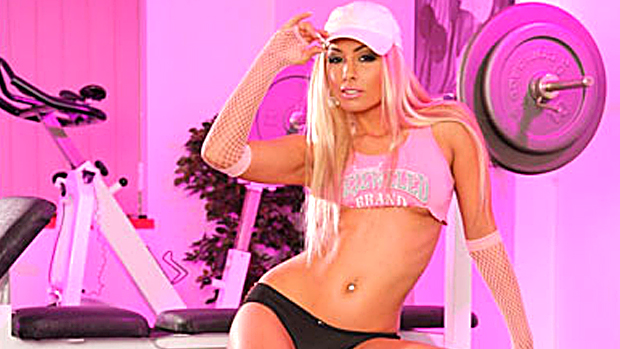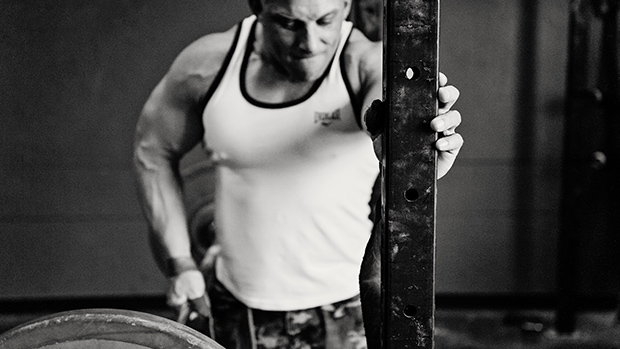"Yo Mike – can you take a look at my program and tell me why I'm not getting anywhere?"
While this may not be the most popular question I'm asked, it's definitely in the top three.
The thing is, it's incredibly hard to look at one single program and determine why someone isn't having success – as the culprit is often months or even years of ineffective or inappropriate training.
Think of your car. If it wasn't performing up to standards and finally broke down by the side of the road, would you only look at what you did that one specific day to figure out what happened?
Of course not. That breakdown had been coming for weeks or months, even years, and it wasn't until that exact day that your car had finally had enough.
Your body and your car are more alike than you think. Here are four reasons why you're not progressing, and some action steps you can employ to get yourself back on the path to success.
You Have Programming ADD
Tell me if this sounds familiar:
You just read the latest Dan John article. You realize that you're too small and need to put on some size.
So you drink your Metabolic Drive®, eat your FiniBars, and do your 30-rep squats like a good boy. The scales are starting to budge. You're noticing a little bit more thickness overall, especially when you rock that Affliction T-shirt at the club on Saturday night.
But then T Nation runs an awesome new fat loss article by Mike Roussel. You start to rethink your strategy. What good is being huge if you can't see your abs? Chicks like abs, and you like chicks!
So you perform a complete training and diet 180. One month later and you've stripped away all that size you just added – but when you get in the perfect light you can almost see your top two abs.
#Winning.
Then T Nation runs another installment of Blood and Chalk by Jim Wendler. You realize that you're scrawny, weak, and have a yoke like Screech from Saved By The Bell. If you were really serious, you'd be focusing on getting strong!
See where I'm going?
We live in a time dominated by the need for instant gratification. Everyone wants to achieve his or her goals right here, right now. But you can't have everything all at once. That's why we have short-term and long-term goals.
If you're serious about this whole strength-training thing, you need to develop a program focused on your long-term goals, but filled with short-term goals and benchmarks to help keep you motivated along the way.
Action Step: Write down where you'd like to be one-year from today.
Do you want to be 10 pounds heavier? Strip away 10 pounds of body fat? Add 50 pounds to your squat? Then work backwards. What do you need to do in both the short and long-term to achieve your goal?
If you want to add 50 pounds to your squat, you need to find a program that will help you address that, while also giving yourself a measurable benchmark to meet in the next month or two, like five pounds to your squat in the next 30 days.
Sure it's only five pounds, but you're on your way to your larger goal. THAT'S winning!
You Have Too Many Priorities
Suppose you've decided that your #1 goal is to get stronger.
First, congratulations. There are certainly worse goals in training (and in life) than wanting to push up your squat, bench, deadlift, or overhead press. So you read everything you can on strength training – block periodization, Westside, 5x5, 5-3-1, 3x3, and everything in between.
You start pulling the program together, and it looks like a mishmash of 25 systems all thrown into one mammoth 4-week cycle. Rather than having one seamless, focused goal for the training cycle, you're trying to train speed, strength, hypertrophy, power, and Zumba – all at the same time!
For low-level guys, this sort of approach may work. After all, you can do just about anything and get stronger, initially. Hell, even some intermediates can get away with this in the short-term.
But the stronger and more advanced you become in your training, the more focused you need to be within each specific training cycle.
The best of the best focus on one, maybe two training goals in each individual phase. Anything more than that and the training stress isn't strong enough to elicit an adaptation.
Action Step: When writing your next program, focus on one primary goal, and one secondary goal. That's it!
And remember, one program is just that, one program. You can't fit every exercise, every training style, and every set/rep scheme into one program.

There Are Too Many Cooks in Your Training Kitchen
When it comes to your training, understand that everyone has an opinion on how you should be training, what "good" technique is, what is best for you, etc.
You might be surprised, but I have people pop in my gym all the time that are more than willing to let me know what they think about my lifting.
- "You should work on X."
- "Why aren't you doing more of Y?"
- "If you did Z you'd be jacked like me."
Listening to everyone will only leave you mired in confusion for the rest of your training career. Instead, you need to gravitate towards one or two people whom you respect and really strive to learn their philosophy.
I do this for a living and need to know about many different aspects of athletic and human development: speed, strength, power, muscle-building, fat loss, energy system development, corrective exercise, rehab, etc. There's a lot to learn, and I want to learn as much from as many different people as I can.
But to give you a practical example, two guys that have always resonated with me in terms of pure strength training are Dan John and Jim Wendler.
They're both focused on big, heavy, and basic lifting, and stripping things down to a bare minimum to achieve success.
Does that mean I listen to no one else on the topic of strength? Absolutely not. But I value their opinion over almost anyone else's, so I'm always going to lean towards agreeing with them on that particular topic.
If I need to get back to basics and figure out why my strength (or that of my clients and athletes) isn't where it needs to be, then I'm also going to lean on their advice versus the advice of others.
I'd suggest you do the same.
Action Step: Once you've determined your primary goals, find a coach or trainer whose methods you trust and follow them.
Do your best to learn their philosophy, so that when someone chimes in with their two cents, you won't be rattled. You know why what you're doing works, and why it will work for you. It doesn't have to be the only method out there – it just has to be one that works for you and that you believe in.
No coach, trainer, physical therapist, etc., is infallible or perfect, but when dark days come and progress stalls, you need someone you can trust to help guide you through to the other side.
You Can't Be Objective About Yourself
It's damn hard to be objective about yourself.
Maybe it's your technique. Is it really as dialed in as you think? Bulletproof? Is there really nothing you should be working on?
Maybe it's your weaknesses. Do you really think you're perfectly balanced? Maybe there's a muscle group or exercise that you could bring up that would give you the breakthrough you've been looking for?
There's a reason some of the best trainers and coaches in the world pay someone else to write their programs and evaluate their technique for them.
I've been doing this 11 years now, and if it weren't for guys like my business partner Bill Hartman, or my training partners Zach Moore and Lil' Stevie Gabrielsen, I don't know where I'd be.
If you're serious about taking your physique to the next level, you need to seek out a mentor or coach to help you. I don't care if your goal is to get lean, get strong, get big, or rock the combine, chances are someone out there is more knowledgeable and more objective about you and that goal than you are.
Trust me, this one simple tip can make a profound difference in your training. Do it!
Action Step: Find a coach or training partner who's willing to give you honest and critical feedback about your training.
If you have the money, a coach is great. There's no better way to fast track progress than to have a coach work with you to take the guesswork out of programming and technique.
If a coach isn't your thing, you need to find an objective, knowledgeable training partner to help figure out why you're stuck. But that's easier said than done. Guys to spot you and tell you "it's all you" are a dime a dozen; good training partners are few and far between.
So if you find a good one, keep them around forever!
Wrap Up
No one likes it when his or her progress stalls. Try one (if not all) of the tips above. I can virtually guarantee you're going to reveal why you're stuck and what you can do to get the ball rolling again.
Give these tips a shot and Good luck!





